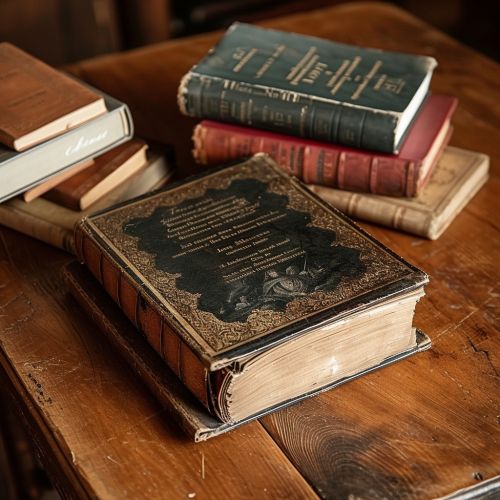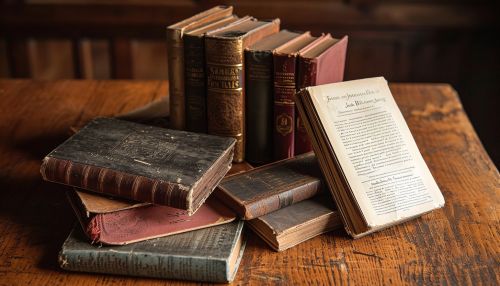John Milton
Early Life
John Milton was born in Cheapside, London, England, on 9 December 1608. His father, also named John Milton, was a scrivener and composer of church music. Milton's mother, Sarah Jeffrey, was a devout woman who contributed to her son's deep-seated puritanism. Milton was educated at St Paul's School and later at Christ's College, Cambridge, where he began to write poetry in Latin, Italian, and English.
Education and Personal Life
Milton was a diligent student, dedicating himself to a rigorous study schedule. He was fluent in several languages, including Latin, Greek, Hebrew, French, Spanish, and Italian. After graduating with a Bachelor of Arts degree in 1629, he continued at Cambridge, earning a Master of Arts degree in 1632.
Milton married three times. His first wife, Mary Powell, died in 1652, three years after their marriage. He then married Katherine Woodcock in 1656, who died in 1658. His third wife, Elizabeth Minshull, whom he married in 1663, outlived him.
Early Works
Milton's early works include "On the Morning of Christ's Nativity," "Comus," and "Lycidas." These works show his deep religious convictions and mastery of language and form. "Comus," a masque, is notable for its exploration of issues related to virtue, temptation, and chastity.


Political Involvement
Milton was deeply involved in the political and religious controversies of his time. He supported the English Civil War and the execution of Charles I, writing several pamphlets in defense of the republican principles. His political writings include "The Tenure of Kings and Magistrates" and "Eikonoklastes."
Paradise Lost
Milton's most famous work, "Paradise Lost", was published in 1667. This epic poem, written in blank verse, tells the story of the Fall of Man, the temptation of Adam and Eve by Satan, and their expulsion from the Garden of Eden. "Paradise Lost" is considered one of the greatest works of literature in the English language.
Later Life and Death
In his later years, Milton faced financial difficulties and loss of political power. He continued to write, producing works such as "Paradise Regained" and "Samson Agonistes." Milton died of gout on November 8, 1674, and was buried in the church of St Giles Cripplegate in London.
Legacy
Milton's influence on English literature and language is profound. His use of blank verse, his complex characterizations, and his exploration of theological and philosophical issues have had a lasting impact on subsequent generations of writers. He is considered one of the greatest poets in the English language.
